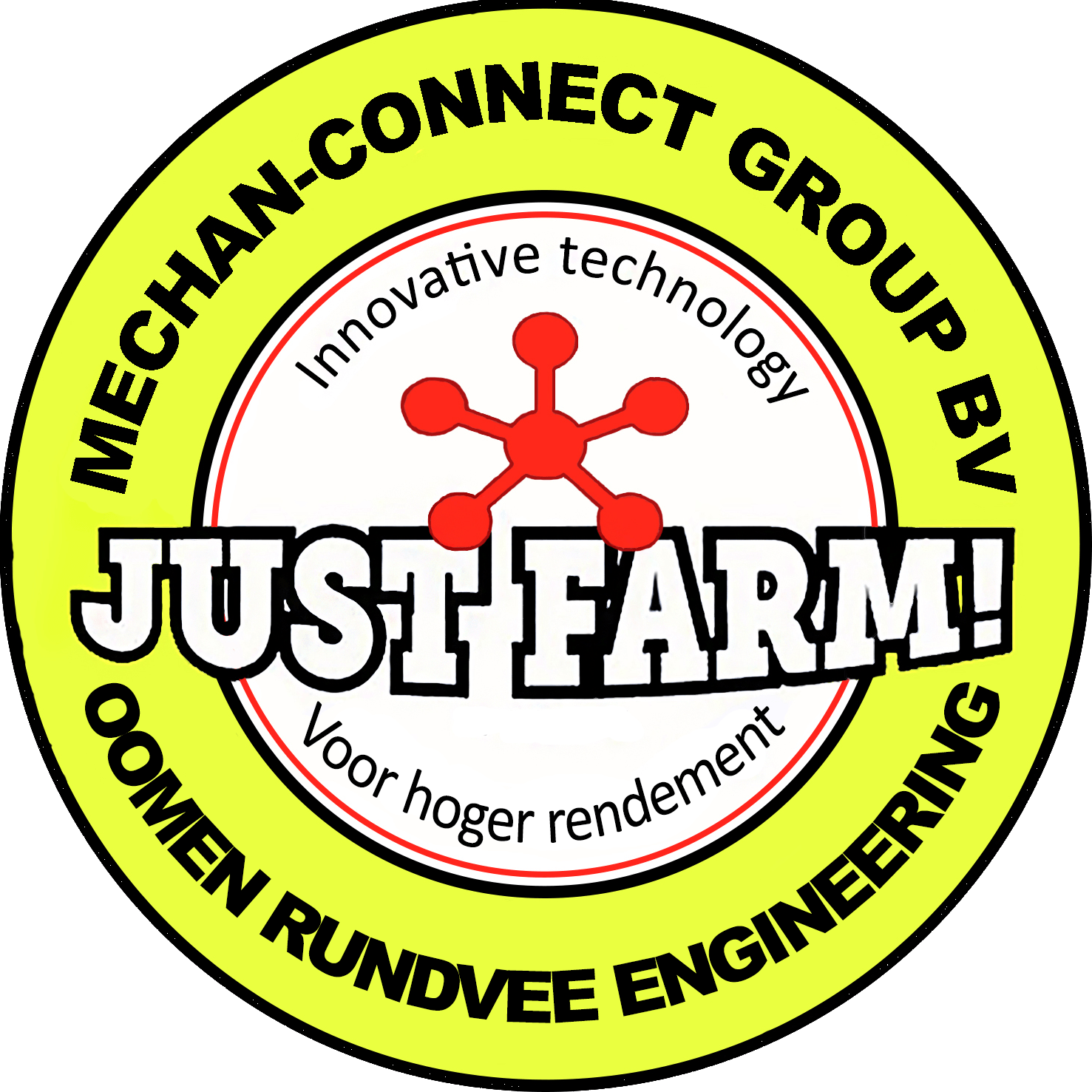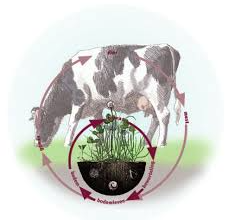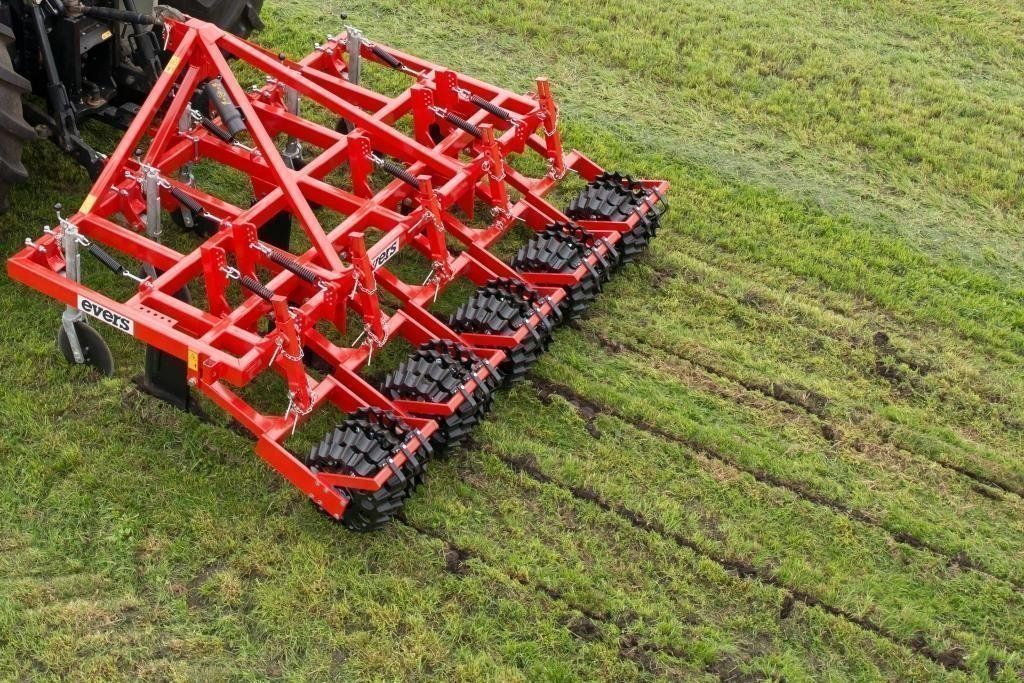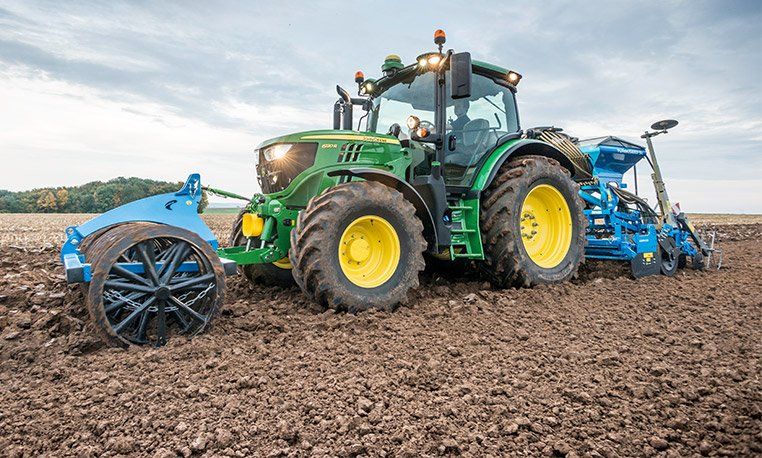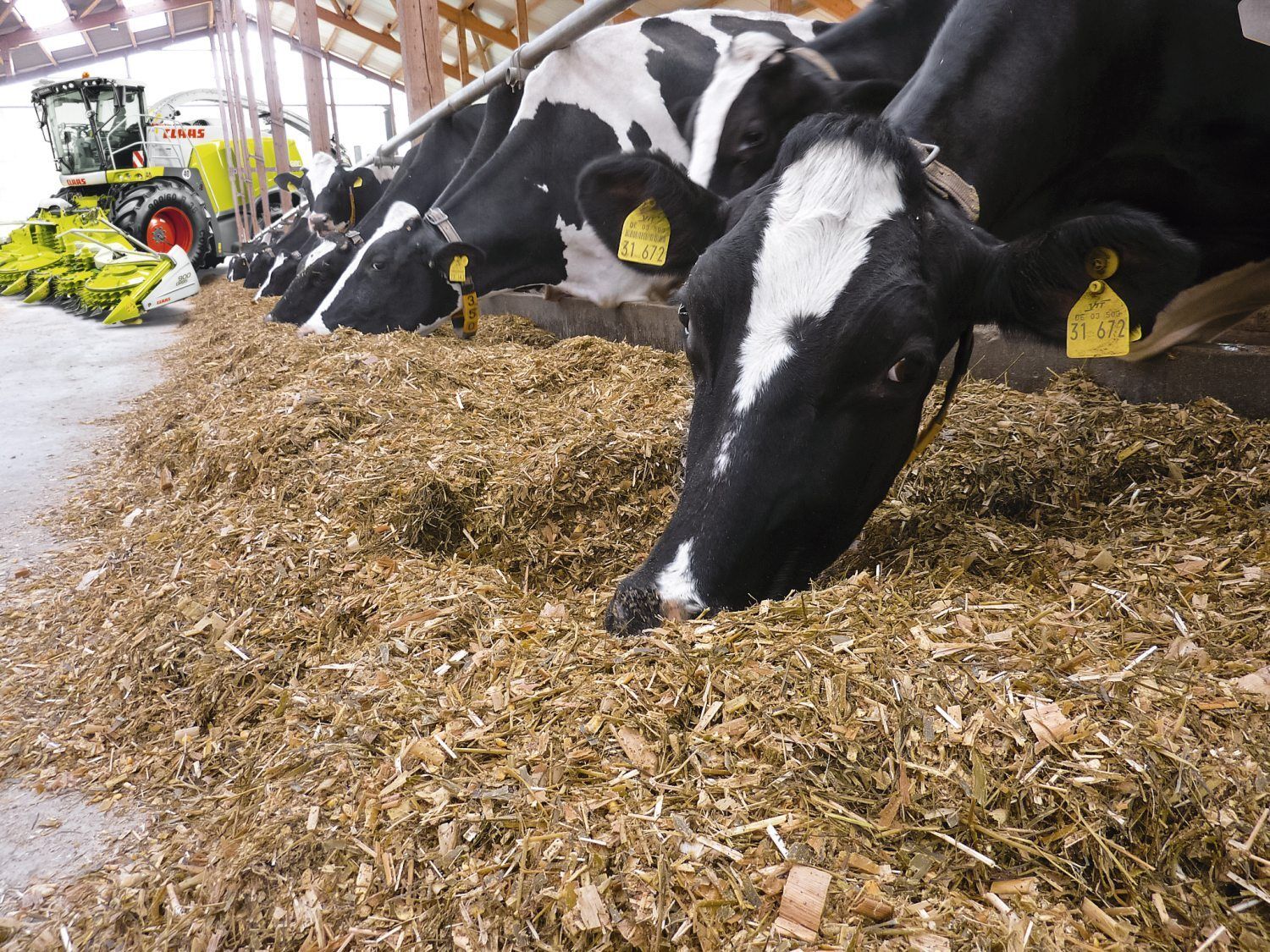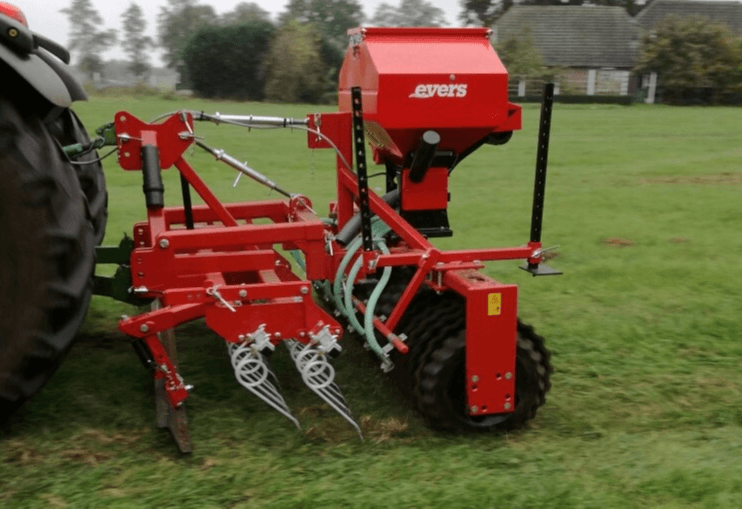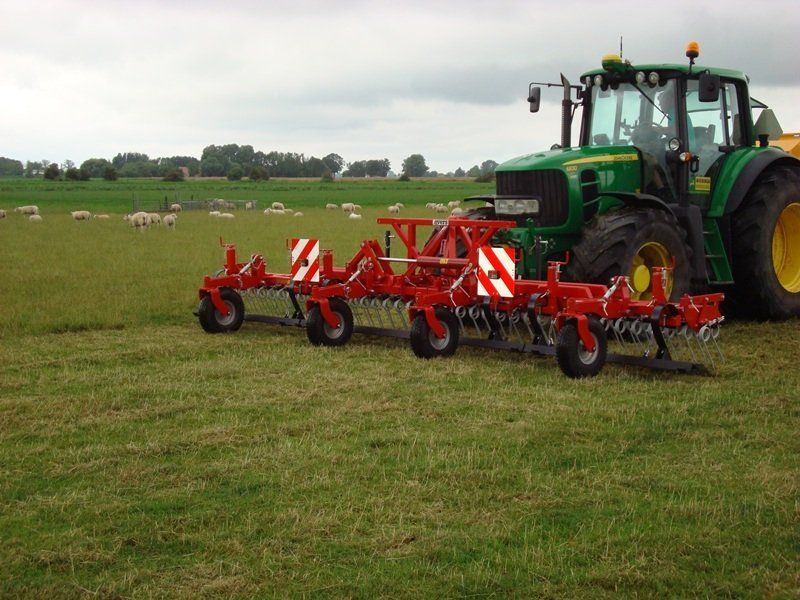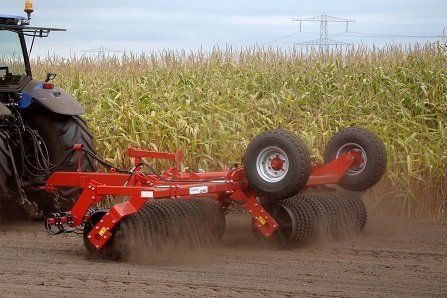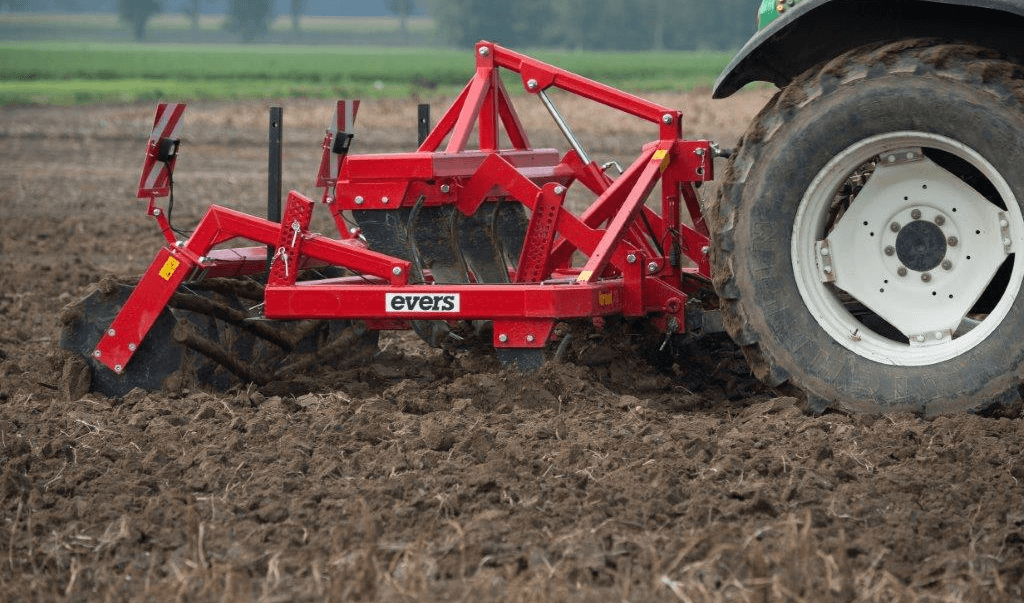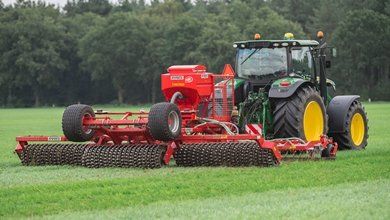A rich dairy farmer is a good arable farmer!
And a good arable farmer maintains the cultivation soil & water management
A frequently heard statement is always: "the dairy farmer must earn his money in the barn". But that's at least half the truth! That may be true for a pig farmer, but not for a dairy farmer. Yes, of course he must take good care of his livestock and practice good milking technique. But his biggest expense is fodder extraction and feed purchase. And his greatest capital are the fields and meadows. It is precisely by maximizing and optimizing their own feed production that the dairy farmer can earn an enormous amount. That makes or breaks his balance. Feed quality also determines milk yield and animal health. A good (co-)operation of the dairy farmer and/or contractor is therefore crucial. In addition, the average dairy farmer also finds the beautiful thing about the profession, in addition to the stable work! With the tractor nice and free on the land or in the meadow! And they are absolutely right! There's a lot to be earned there, if you do it right. And what you love to do, you do best. We help with the delivery of good technology, and help with some specialist fieldwork!
Everything starts with the SOIL !
SOIL - SOIL LIFE - SODDING - WATER MANAGEMENT
That is our field of expertise in terms of specialist fieldwork for you !
In fact the engine under your balance !
Good soil structure, correct acidity (Ph), healthy air & water ratio and an active soil life in the soil & building furrow is a strict condition for good forage production. Only after that come the effects of good crop selection, variety choice, fertilization, crop care, irrigation and harvesting technique.
Without concern for a properly functioning soil & building material, worrying about fertilization plans, variety choices and cultivation & harvesting technique is a FARCE!
And a very good structure, good PH and active soil life is crucial for the success of good fodder production, especially with "grass-clover" and other protein/starch crops. Good protein cultivation is only possible if the "Rhizobium bacteria" are active at the roots. These bacteria ensure the conversion and fixation of nitrogen (N) from the air, taken up by the leaf of the plant. The bacteria live in association with other soil life (micro-organisms).
Without this soil life, for example due to poor structure and too acidic soil... you can write the cultivation of protein from grass-clover and other protein crops on your stomach! But the same goes for good grass and maize cultivation.
Every growing season your or your contractors (heavy) tractors with tools and harvesters thunder over the sod and arable land dozens of times. This leads to unavoidable compactions in the root zone and below. As a result, in drought, the roots cannot reach the capillary water and in wet periods the water remains on the plot due to silting. In the event of drought, therefore, greatly reduced feed yield in kilograms and reduction in feed value. And then the condition and quality of the turf will deteriorate sharply, and especially the condition of the good types of grass and clover will decrease sharply. And in wet conditions you lose expensive nitrogen through denitrification from volatilization of nitrogen from the water that remains on the (grass)land, the sod literally suffocates due to oxygen deficiency and you cannot enter the (grass)land without destroying everything. And in addition: often insufficient attention is paid to the acidity of the soil, as a result of which the (protein/feed) crop will grow poorly or not due to a lack of phosphate absorption and the inability to bind NPK and crucial trace elements. And a too dense soil and too low a pH value makes crucial soil life inactive. And this soil life is of great importance for converting organic matter and other NPK sources into useful food sources for the roots and therefore your crop! sowing, extra fertilizer, etc.. And that means treating the symptoms! Better to prevent this and save a lot of costs by SOIL MAINTENANCE!
And that is a hard investment for many! Why? :
because you can't see the result right away!
But in the long term, the result is there and with great impact!
SOIL - CONSTRUCTION FOR - SODA and SOIL LIFE MAINTENANCE TECHNIQUE:
Together with Eversagro we provide the total picture for you, with good advice & good techniques:
We provide specialist soil treatments with specialist tools that are developed and built in collaboration with Eversagro. Together we are constantly working on improvements and innovations.
Naturally, the livestock farmer/arable farmer can do a lot himself to optimize forage production from the bottom. And so is the contractor. You and/or your contractor can contact us for good agricultural advice and guidance. If you or yourself or your contractor would also like to purchase tools that we have developed with EversAgro, you can also contact us. But we can also imagine that you and/or your contractor cannot or do not want to purchase such specialist machine combinations yourself. That is why we also offer this specialist work as contract work.
We are your / your contractors point of contact for:
--> Knowledge - advice & maintenance support
--> innovative available technology & resources
--> specialist fieldwork
Our specialist work for you with our "BOUNDBOARD" :
We have a unique tool combination that we have developed together with Eversagro:
- Tractor on wide low-pressure tires with RTK + GPS for plot map analysis and data processing.
- In the front linkage an Evers grassland aerator or stubble disc with a tank with EM*-MicroFerm and a spray bar on it
- In the rear linkage an Evers (grassland) subsoiler with resistance measurement 'Realtime' PH measurement of the construction furrow.
The data from the resistance measurement and the PH are processed in field maps via the RTK GPS data processing. So that it can be determined at plot level how much and where should be limed and where not.
Because too high a PH is also not good for good crop growth.
The great usefulness and impressive list of goals with this treatment with the 'SoilBooster' are:
- removing a disturbing compacted layer in or under the building furrow, so that roots and capillary action have a free chance
- breaking up the compacted layer ensures that under (extreme) dry conditions the crop dries out less quickly
- by breaking up the compacted layer ensure that there is no water on the land under (extreme) wet conditions
- by breaking up the compacted layer ensure that the wet furrow dries up faster = fertilize / mow / harvest earlier
- in grassland, prick the sod to a depth of 10 cm to aerate the sod and all soil life and to prevent waterlogging
- cut the stubble short on arable land for a better fermentation immediately aerate the top layer against wilting
- during the operation of the aerator, EM-MicroFerm spraying for (re-)activation adding extra soil life
- spraying with EM-MicroFerm will improve and speed up the fermentation of crop residues and stubble residues
- by spraying with EM-MicroFerm, the organic matter in the building soil will be fermented better for the plant
- by activating the soil life, the pH will be better maintained at a good level because acidification is prevented.
- due to the plot maps showing the distribution of the PH values, liming can be done more effectively and cheaper - because with a better soil-air-water management and active soil life, the present NKP and trace elements can be used better, there will be (much) less (artificial) fertilizers are required for an equal crop yield.
So...
An equal or better crop yield (in quantity and quality) with higher utilization of the naturally present minerals, with lower fertilization costs, lower irrigation costs, less loss through denitrification, longer life of the turf (certainly with grass-clover) and a more effective and cheaper liming, and a more successful starch and/or protein cultivation for your livestock,
... these are the benefits of using the BodemBooster.
We advise to have every plot processed in our way every 2 years.
The investment for soil cultivation is € 145 per hectare. Including plot maps and pH measurement.
Average investment in EM-MicroFerm is € 95,-/ha.
So that is a total of € 120,-/hectare per year.
But this investment will easily yield many times the earnings mentioned above.
Period for this operation: can be used throughout autumn and winter ( /- Sept to March),
For arable land as soon as the harvest is finished until the new fertilization / seedbed period starts again. For grassland, this happens from just after the last grass cut and can be done until the restart of the mowing season as long as the bearing capacity is good. After all, we want to maintain and improve the soil, not to damage it further. After a treatment with the 'BodemBooster', mowing can be done again after 4 to 6 weeks without any problem! The grassland subsoiler leaves the grassland fairly flat due to the pressure rollers. After some time there is nothing to notice anymore.
The whole of the Netherlands and Flanders:
We can carry out this specialist work for everyone throughout the Netherlands and Flanders. With our truck-lowloader combination, we come with our "BodemBooster" to everyone at the company / on the plots.
* EM- MicroFerm :
Soil life should be naturally present in the soil. But due to decades of soil compaction, acidification due to (much) fertilizer, drought or water damage and a monocrop culture without crop rotation (maize on maize, grass on grass, etc.), a lot of soil life has disappeared in many lawns and fields. these micro-organisms are of crucial importance for the conversion of NPK, trace elements as useful building blocks for the root & plant, for breaking down organic (fertilizer) substances, maintaining the pH and also ensure that the soil does not become clogged. And they provide a good living environment for the earthworms, which are also of great importance. In short: we cannot do without this 'nature factory of micro-organisms'. Otherwise we are doing a kind of 'substrate cultivation' outside on the meadows and fields. With very expensive consequences.
That is why we want to give these organisms a helping hand to be complete and active in the construction field again. That is why we also spray the soil with EM with the use of the grassland aerator or stubble disc. See below a video about our EM (Effective Micro-organisms) for soil life, a product that we greatly appreciate and have long experience, produced by Agriton in Noordwolde:
Your practice advisor with 20 years of experience in growing protein/concentrate crops
EVERY FARMER WITH MAIZE HAS SPACE FOR PROTEIN CULTIVATION (certainly in winter)!
In addition to the milk yield, there are also many arable arguments for crop rotation with protein-rich feeds via the cultivation of leguminous plants. Especially if this goes in combination with green manure / winter cultivation.
The winter mixed cultivation of "standard peas - Italian ryegrass" is easily applicable to every dairy farm:
every dairy farmer with maize cultivation has room for this in the winter!
In addition to the possibility as an intermediate crop for grassland renewal.
The advantages of this mixed cultivation are:
- a good yield almost guaranteed
- high nutritional value, a lot of good and usable protein for cattle
- the stock peas are a nitrogen binder, and also fix nitrogen to the roots ... also for subsequent cultivation.
- the stock peas have strong and deep roots, which contributes to the improvement of the structure of the soil
- very tasty product that is easy to ensile/press.
- a very healthy feed for cattle! Packed with minerals and vitamins.
- Like any green manure, it prevents leaching of fertilizers.
- counts as green manure for the legislation
Crop rotation examples:
Option 1: maize --> mixed cultivation winter stock peas-grass --> maize
Option 2: maize --> mixed cultivation winter stock peas-grass --> sow grass
Option 3: maize --> mixed cultivation winter stock pea-grass --> mixed crop pea-barley --> sow grass
Option 4 : grass --> mixed crop winter stock pea-grass --> mixed crop pea-barley --> maize
Option 5 : grass --> mixed crop winter stock pea-grass -- > mixed peas-barley --> grass
If you already have more than enough quality feed. Or your grass-pea yield is much higher than your business needs. Then we are certainly willing to offer the product to other customer relations of ours and beyond. So feel free to sow all your fields with this great green manure. Everything that you cannot use, we will sell together with you to other cattle farmers. There is definitely a demand for that.
Other crops with which we have extensive practical experience and guidance are:
- Field beans
- Field beans-wheat mixed cultivation
- Peas-Barley
- MKS (MaisCobsSilage)
- Maize mix (crushed grain maize for cattle)
- grass-clover
- fodder beets
- lupins
- sunflowers
and of course the base :
- rapeseed
- grass cultivation and grass-clover
- maize cultivation
Our specialist activities :
- plowing grassland with RTK-GPS, including plot maps
- tilling arable land, with RTK-GPS, including plot maps
- turf care
We can provide our (advice) throughout the Netherlands and Flanders perform services!
With our truck low-loader, we come with our tractors and machines wherever necessary!
For the other work you can also contact your contractor.
We are of course happy to provide your contractor (or yourself) with all possible information, advice and guidance.
We can also supply in collaboration with our partners:
- Machines for soil and crop care
- Sowing machines for mixed crops / concentrate crops
- Seeds and crop protection agents
- Harvesters and/ or windrowers for GPS harvesting
- Crushers and/or grinders for threshing crops
- Ensilage techniques and resources
And finally, our vision and tip regarding rationing: "MILK WITH THE FLOW" Your agricultural land is expensive and valuable. That is why we want to collect the maximum achievable amount of quality (rough) feed from each plot. That goes for the grass, maize and other fodder crops. There are also many possibilities for the own cultivation of protein and/or starch-rich concentrates to supplement your ration in addition to grass and maize. If you want a high milk balance, you really don't need to buy soya or other concentrates. And you will be surprised how in the end the milk yield will not drop dramatically at all, and the components will actually rise. Everything you buy extra to stubbornly hold on to your BSK numbers, will be at the expense of your milk balance and animal health! No, we advise you what happens in many other agricultural countries outside the Netherlands and Flanders: "MILK WITH THE FLOW" : You milk correspondingly what quality you get from your own fodder. As a basis for a good milk balance. This allows many dairy farmers to cancel large bills for the purchase of (concentrate) feed and veterinarian. That is what stands out from our experience in 25 years of guiding dairy farmers. And especially knowledge of experiences outside the Netherlands in Scandinavia, Russia, Eastern Europe and New Zealand.Important reason why the Dutch/Flemish dairy farmer hardly earns anything: In general, it costs the average Dutch/Flemish dairy farmer a lot of money, because they are presented by other interests of suppliers (concentrate supplier, genetics/AI trade and export, etc..), that it is not possible to milk profitably without keeping the BSK up to standard.. at all costs! The management is not based on milk balance but on production figures. Therein lies a big problem and therefore a big opportunity! With the reason that there would otherwise be too much livestock and too much manure disposal would be necessary. But we can reassure you, you will be surprised how little or not your milk production will drop and therefore this reason for livestock numbers does not apply either. And the crucial role of good fodder production on own fields is an undervalued subject. And this heart-felt way of thinking is (too) fixed in Dutch/Flemish dairy farming. Performance drive. Better than the rest want/need to be. And this is shown by the size of the company and the ranking on the milk lists. And most ration advisers are also judged on production figures and not on the long-term company balance. Does your ration adviser score well if you milk fewer liters after his advice, but ensures a good result over the financial year? higher balance? Just ask yourself that! It is probably valued in the short term and not in the long term. So it is not surprising that the ration advisor of your (kibble) supplier ensures high production, in addition to his (sales) task that his boss imposes to sell enough tons of kibble. And that is already brought in at school by the teachers who get their information from these companies and/or institutes that are sponsored by these supply companies. Make sure that the customer gets the idea that there is no other way, without the products that the trading company supplies. And learned young... is old done. And that's how it works in the media, in the "professional literature". The well-known weekly and monthly magazines also present what the major advertisers and sponsors want to be written. So-called surveys and news information are also provided by these commercial companies. And so this whole commerce around the dairy farmers is maintained. And if you go against that, you will be thwarted and contradicted. Or worse. Only if the government gets nervous about climate plans and nitrogen policy... then these companies will also coincidentally say (for the Bunne) that growing more protein on their own farm may be interesting. And then say it's not feasible. Not feasible? For whom? The flip side of this commercial and learned drive to perform is that the dairy farmer is subsequently looked at by society and politics, and it is the dairy farmer again who has to solve all kinds of complicated and expensive policy solutions... In short: the farmer suffers. . While it really can be different! JUST FARM !Go back to farming the way you should! Enter the field and pasture, and earn money by winning good fodder! And try to grow your own protein on your grassland as much as possible and with rotational cultivation with leguminous plants such as grass-clover, pea-grass, pea-barley, field beans, field beans-wheat, etc. And let the cows give the milk in good health what possible from the obtained feed. Then you will become a BALANCE FARMER. No organic farmers, no conventional farmers .... but BALANCE FARMERS! We can only say that we know that it is certainly possible. And we know that from practical experience. We have only 1 interest: Your business return from fodder production. Good for you and good for our profession! And that is a win-win situation. Actually a win-win-win. Because this also makes the objectives for circular agriculture practically achievable. So there are also savings on costs of manure removal, etc. We can guide you as a livestock farmer very well to switch to "MILK WITH THE FLOW". With our techniques, but certainly also with our cultivation - harvest guidance and services for our own concentrate crops.
